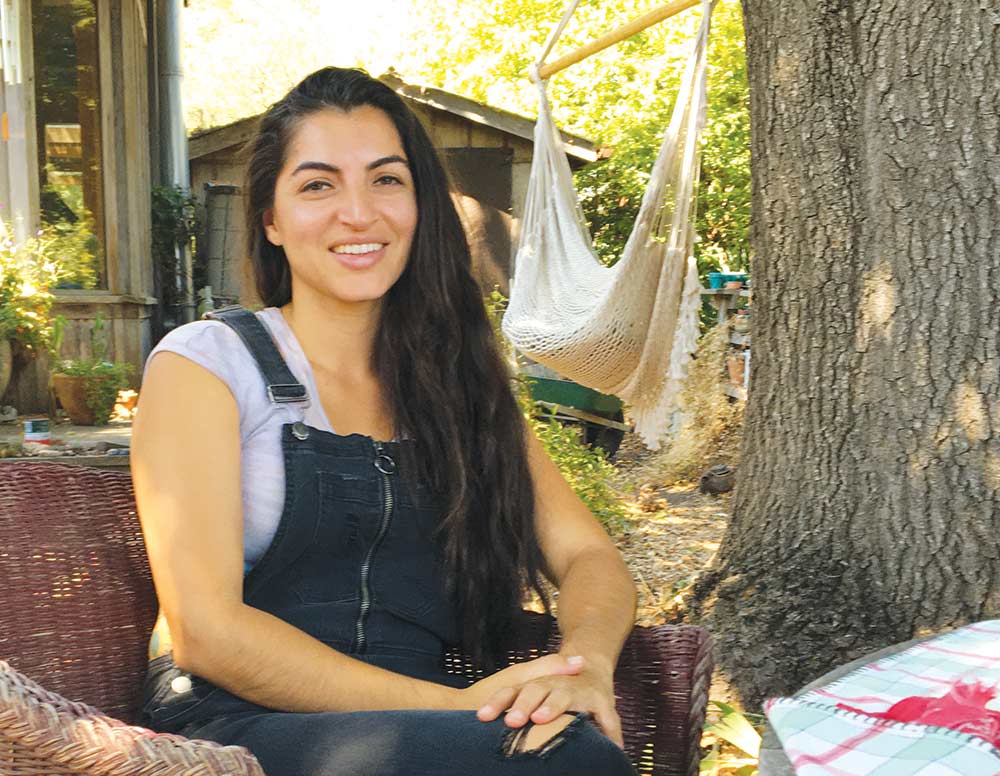“Who’s the chica?” my nosy neighbor asked when he saw Natasha Khallouf climb into her car and take off. I wanted to tell him to mind his own business. Instead, I said, “She’s a doctor.” No doubt about it, Dr. Khallouf stood out in my backyard. Her cannabis brand, “Mindzright,” also stands out in Sonoma County, as does her cannabis farm,“Agricola Flower.”
A Doctor of Acupuncture and Chinese Medicine (DAOM), and an L.Ac, Khallouf runs a Sebastopol clinic, On Point Integrative, where she integrates acupuncture with herbs and helps educate patients about nutrition and healthy lifestyles.
I think of her not only as a doctor of Chinese medicine and a marijuana grower, but also as a curandera, which translates from Spanish to English as “healer.” Curanderos often provide the first line of defense against aches, pains, colds and the blues throughout Latin America and in parts of the U.S. In some ways, Western medicine is still catching up with curandero lore and folk remedies, including the use of cannabis.
Raised in a trilingual home in SoCal—her mother was born in Nicaragua, her father in Lebanon—Khallouf cut her eye teeth on the streets of L.A. She began to use cannabis at an early age and was fortunate, she tells me, to encounter and explore many of the city’s alternative communities, hear all kinds of music—including reggae and classic rock—and rub shoulders with intellectuals.
Along the way to becoming a doctor, she learned cannabis has been cultivated for thousands of years. Indeed, it shows up prominently in Shen Nong Ben Cao Jing, the classic Chinese text on herbs, agriculture and acupuncture which was written nearly 2,000 years ago and is still used as a reference guide.
In 1996, when California voters approved Prop. 215, which ushered in the era of medical marijuana, Khallouf stepped into the breach to link cultivators, patients and health care providers, and offered helpful suggestions about the best strains for particular ailments, how much to use and how often and what methods were the most effective.
When the pandemic arrived this winter, followed by fires, heat and smoke, Khallouf refocused her practice and began to devote herself to the care of the undocumented and farm workers at risk.
As a single woman with two children, she says she can feel marginalized in Sonoma County, even among the cannabis crowd. She draws strength from her inner reserves and the communities she serves. I’d go to her clinic and ask for acupuncture and herbs, both of which I have made use of for decades. One day my nosy neighbor might say, “You rock, chica.”
Jonah Raskin is the author of “Dark Past, Dark Future: A Tioga Vignetta Murder Mystery.”








